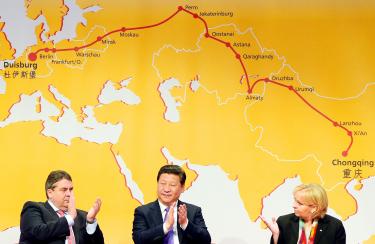
Reactions to China’s still vague-on-details announcement regarding its proposed plan to commit major investments into the construction of a “New Silk Road,” which would link Europe, Asia and Africa, have been quite reticent.
China is seeking to usher in the largest infrastructure program in history by injecting close to 110 billion euro (404 billion reais and approximately $122 billion) into it — in addition to public and private investments that could reach $26 billion (85 billion reais and approximately $29 billion) — in order to cement a trade union among the three continents, which would allow for the construction of ports, railroads, highways and logistics platforms in 65 countries. This megalomaniacal project would, if completed, encompass a third of the global gross domestic product, and, according to the official Chinese narrative, guarantee global trade and cooperation.
Will it be possible to coordinate a project of this magnitude and complexity? Without the firm cooperation of Europe, Japan and the United States, probably not.
Brussels, Tokyo and Washington have interpreted Xi Jinping’s announcement as an attempt by Beijing to increase its influence in the world. China needs a physical conduit through which it can purchase primary materials and export its products. The Chinese leader’s assertions that the Asian giant doesn’t seek to “interfere in the affairs of other countries” are hard to believe; whoever controls the flow of investments — in particular in emerging, underdeveloped countries — certainly has a greater degree of influence in that sphere. It’s impossible to separate economic power from political influence.
But Xi Jinping has made a strategically intelligent move: Just because his global plan is hard to implement doesn’t mean that it isn’t capable of attractive investments. What’s more, he’s placed his political challenge out on the table: Beijing is responding to Trump’s protectionist rants with a program of its own that could come to symbolize the defense of globalization.
Global trade has been horror-struck by the [power] void; what China wants is to step in and compete with the United States in order to assume global economic leadership.

Leave a Reply
You must be logged in to post a comment.